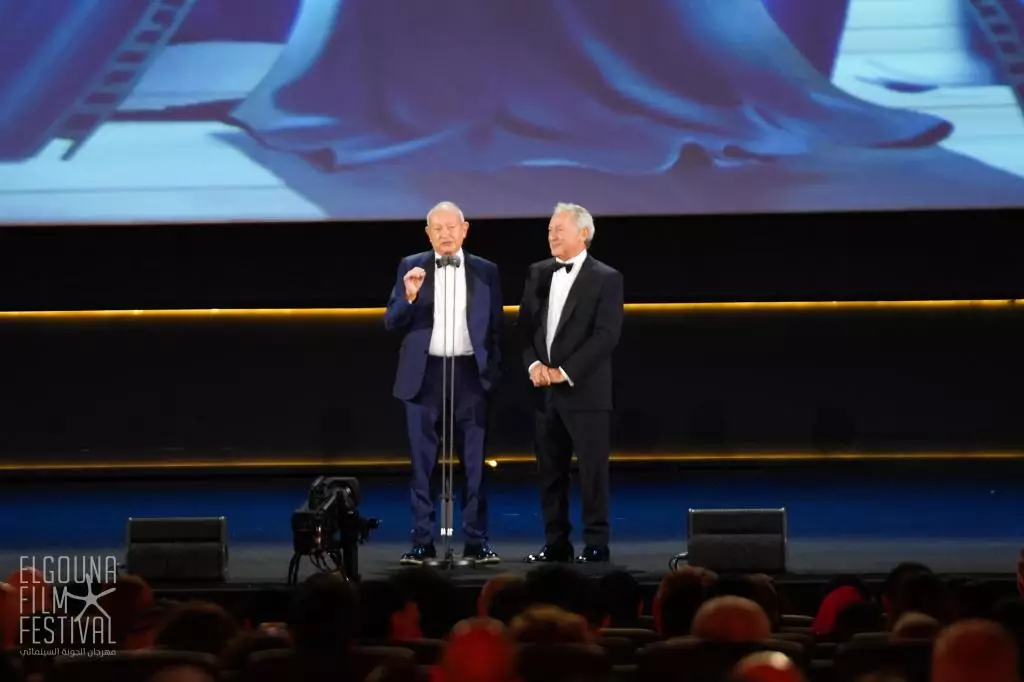The El Gouna Film Festival, an important event in the cinematic calendar, commenced recently against the backdrop of geopolitical instability and civil unrest in the Middle East. This year, the festival did not simply aim to entertain, but rather, it sought to engage in discourse surrounding peace and the intrinsic role of art in articulating the collective human experience, especially in times of crisis. The festival’s opening was marred by controversy, particularly surrounding Abdelwahab Shawky’s short film, *The Last Miracle*, which was abruptly removed from the lineup. Such an occurrence signals a deeper issue within the interplay between art, censorship, and political realities in Egypt.
The excision of *The Last Miracle* from the festival program has garnered significant attention, underscoring the perennial challenges artists face when navigating the complex landscape of censorship. Officially, the organizers cited a lack of the necessary screening license as the reason for the film’s removal. However, whispers of censorship linger, particularly in light of film critic Tarek El Shennawi’s remarks, who indicated that the pull might cultivate an atmosphere of suppression even in a festival setting. This serves not only as an individual crisis for Shawky but reflects the broader cultural repression that can stifle artistic expression in a society where dissenting narratives are often unwelcome.
Shawky’s film is noteworthy, inspired by a narrative from the esteemed Naguib Mahfouz, a literary figure whose works often confront complex social issues. Through the story of a man who embarks on a spiritual odyssey resulting from a phone call from a deceased figure, *The Last Miracle* signifies deeper themes of hope, faith, and the existential shadows that loom post-conflict. It is particularly poignant that Mahfouz’s original story emerged from the ashes of the Six-Day War—an event that reverberates through generations and continues to inform the socio-political landscape of the region. In this context, Shawky’s film symbolizes not only an artistic endeavor but also a vessel for collective memory, emblematic of a people’s experience marked by grief and resilience.
Compounding the complications surrounding the missing film was the palpable shift in the atmosphere at the festival. The traditionally vibrant El Gouna Film Festival, known for indulgent celebrations and red-carpet glamour, donned a more somber visage this year. The absence of ostentatious outfits and the elimination of an official red carpet served as reflections of the ongoing humanitarian crises in the region, particularly in Gaza and Lebanon. Egyptian tycoon Naguib Sawiris, one of the festival’s founders, poignantly addressed these circumstances in his opening remarks. He highlighted the global suffering caused by conflict while proclaiming cinema’s unique ability to deliver powerful messages that resonate with audiences.
Sawiris called for unity and a cessation of war, asserting that the world’s conflicts often stem from personal egos rather than the collective good. His remarks encapsulate a critical sentiment that transcends the boundaries of cinema, echoing a desire for leadership rooted in empathy and understanding rather than division and confrontation. By framing the festival as a platform for peace, it sought to emphasize that art can be a powerful antidote to despair, fostering dialogues that promote healing and reconciliation.
Despite the overshadowing political landscape and setbacks, this year’s El Gouna Film Festival presented a diverse assortment of 77 feature and short films from around the globe. The inclusion of internationally acclaimed titles, such as Pedro Almodóvar’s *The Room Next Door*, brings forth a multi-layered cinematic experience. As filmmakers converge to share their narratives, the festival serves as a critical junction for cross-cultural exchange, enabling stories to transcend national boundaries.
Artistic expression, particularly in times of upheaval, has a way of uniting people through shared narratives. The festival, amidst controversy, maneuvers the landscape of cultural diplomacy, fostering connections that extend beyond the confines of entertainment. In an age marked by polarization, initiatives like the El Gouna Film Festival can reaffirm the shared humanity that weaves its way through the myriad of stories told across screens.
The commencement of the El Gouna Film Festival this year operates under an intricate interplay of art and activism. As filmmakers grapple with the specter of censorship while attempting to convey profound messages that address urgent societal issues, the festival’s reception becomes more than just an entertainment event; it transforms into a critical platform for discourse, healing, and, ultimately, hope. The experience unfolds against a backdrop of grave realities that continue to affect countless individuals, yet it reiterates the fundamental belief in the power of art to inspire change and provoke thought. In these challenging times, the voices of artists are needed now more than ever, as they amplify calls for peace and understanding across the globe.
